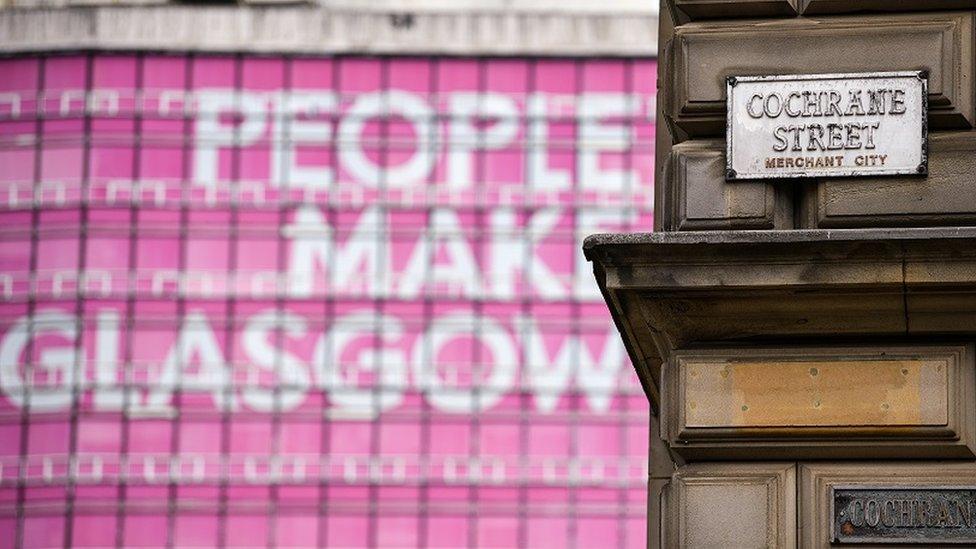How a flood led family to discover slavery link
- Published
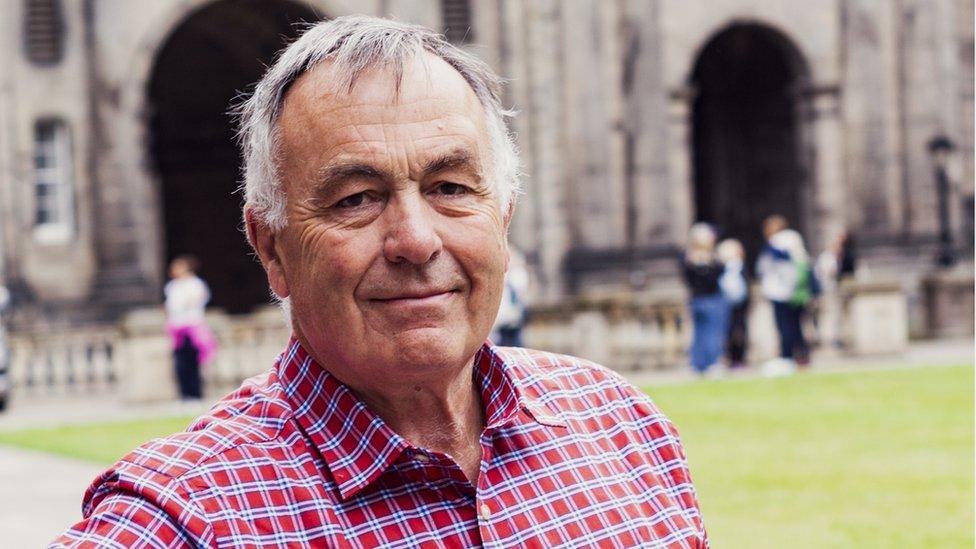
Richard Blake has spent 30 years researching his family's links to slavery
Growing up, Richard Blake knew only vague details of his family's long-lost fortune but a flood in the 1990s led him to uncover his ancestors' troubling role in the transatlantic slave trade.
As a boy he was fascinated by his grandmother's stories of the family's history - adventures involving swords, blowpipes and far-off lands.
Descended from the Grants of Kilgraston House in Perthshire, Mr Blake can trace his maternal line to Sir Francis Grant, an artist who painted Queen Victoria, and Mary Grant, a 19th century sculptor.
While he took an interest in the artwork, he said, he didn't have any real inkling of what lay behind the family privileges and wealth.
"It was all a bit of a mystery," he said.
Mr Blake was working as a partner in a legal practice in a former bank building in Perth when the nearby River Tay flooded in January 1993.
The bank vault, which was being used to store legal documents, was filled by about 2.5ft (1m) of mucky water.
When it was cleared out, boxes chalked with Kilgraston began to appear on his desk.
While looking through them he discovered a receipt from 1787 for the sale of Kilgraston estate to one of his ancestors.
"That was a sort of catalyst for me, to try to uncover how this John Grant had afforded what I think is the equivalent of more than £2m today for an estate in the south of Perth," Richard said.
"Since then it has been an explosion of information for me about Jamaica and Scotland's involvement in slavery."
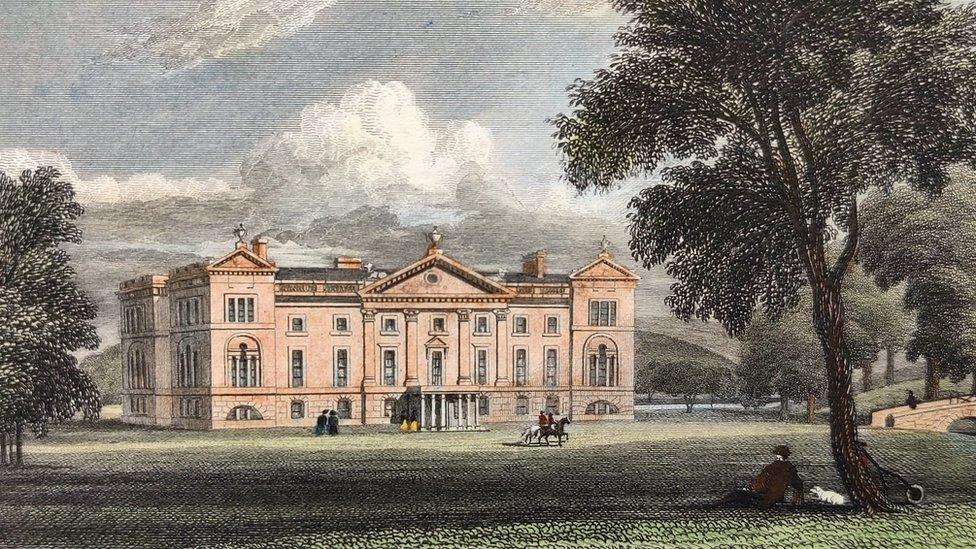
Kilgraston house, pictured here in 1820, was purchased by John Grant in 1787
Through his research Mr Blake learned that John and his brother, Francis - whose son was the painter Sir Francis - left Scotland as teenagers in the 1750s.
They worked in Nova Scotia, Canada, for some years before travelling to Jamaica.
It was one of the British empire's leading sugar producers where, by 1800, about a third of the island's estates were owned by Scots and heavily reliant on slavery.
John and Francis Grant worked as attorneys, managing plantations for absentee landowners.
John eventually became Chief Justice of Jamaica while his brother bought a plantation of his own along with enslaved people to work it.
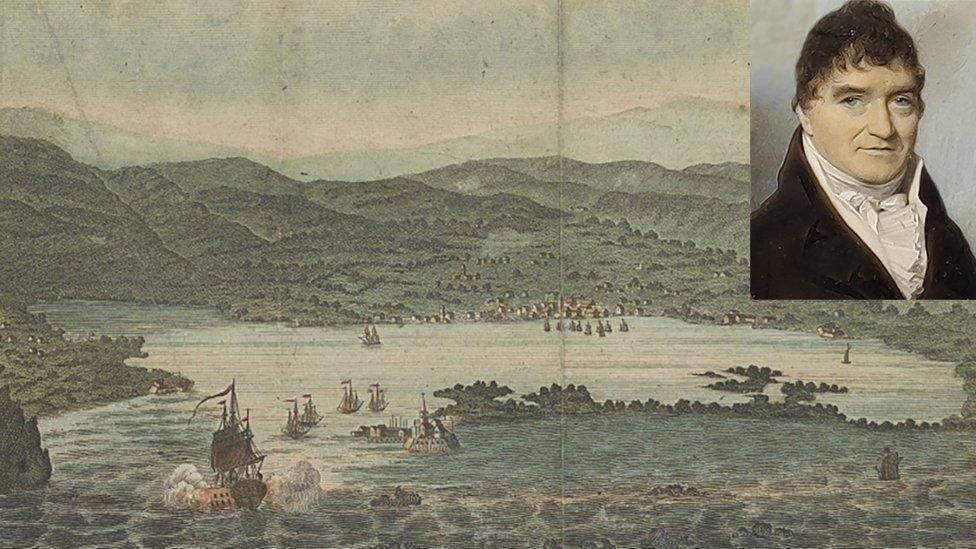
Francis Grant, pictured, travelled to Jamaica with his older brother John where the two of them managed plantations for absentee landowners
Mr Blake said he suspected Francis Grant may also have been a slave trader after reading vague information about interest in a ship in Bristol.
At the time Bristol was a major slaving port. Ships would arrive with goods produced through enslaved labour in the Caribbean such as sugar, rum and cocoa, and then go to West Africa to acquire captives to sell into slavery.
"It was pretty shocking for me to uncover the extent of those links to slavery," Mr Blake said.
"It has affected how I feel about my heritage, it has put a totally different complexion on how I feel about that side of my background."
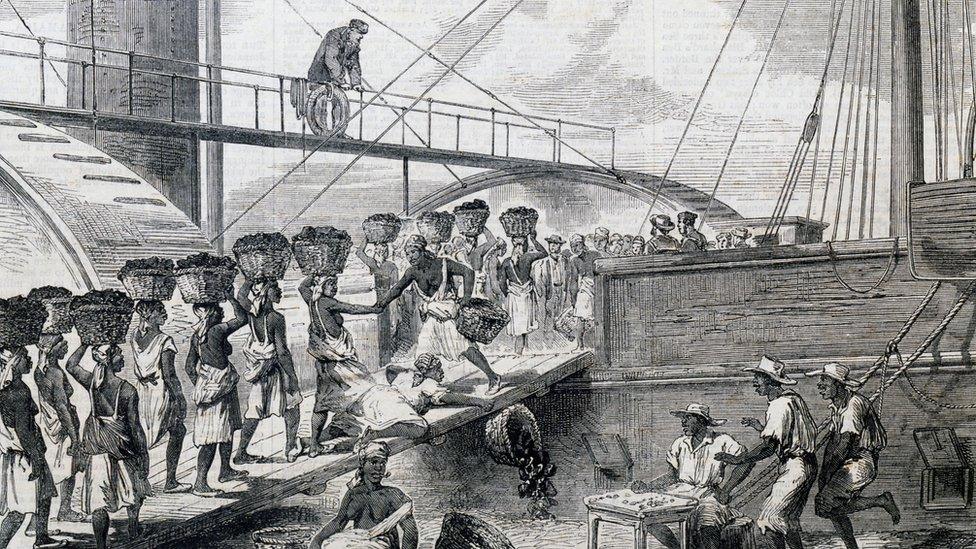
Coal being loaded on to a ship at Morant Bay in Jamaica in the 18th Century
Dr Stephen Mullen, a lecturer in history at the University of Glasgow, said the amount of wealth brought back to Scotland by people like Mr Blake's ancestors was "enormous".
"I calculated that the cumulative returns by Scottish sojourners in the West Indies between 1784 and 1858 was the equivalent of £894m in modern values," he said.
This year another family with links to slavery, the Trevelyans, agreed to apologise and pay reparations to Grenada as compensation for its involvement in slavery.
Laura Trevelyan then quit the BBC after 30 years to become a full-time slavery reparations campaigner.
Like the Trevelyans, the Grant family was paid compensation for the people they owned when slavery was abolished by the UK government in 1833.
"The Grant family line died out in 1950 and the wealth disappeared in the 19th century," Mr Blake said.
"It was spent - and you will have countless repeats of that through Scottish society where it has just evaporated.
"I think if there is to be reparations it would probably have to be directed to the lawmakers," he said.
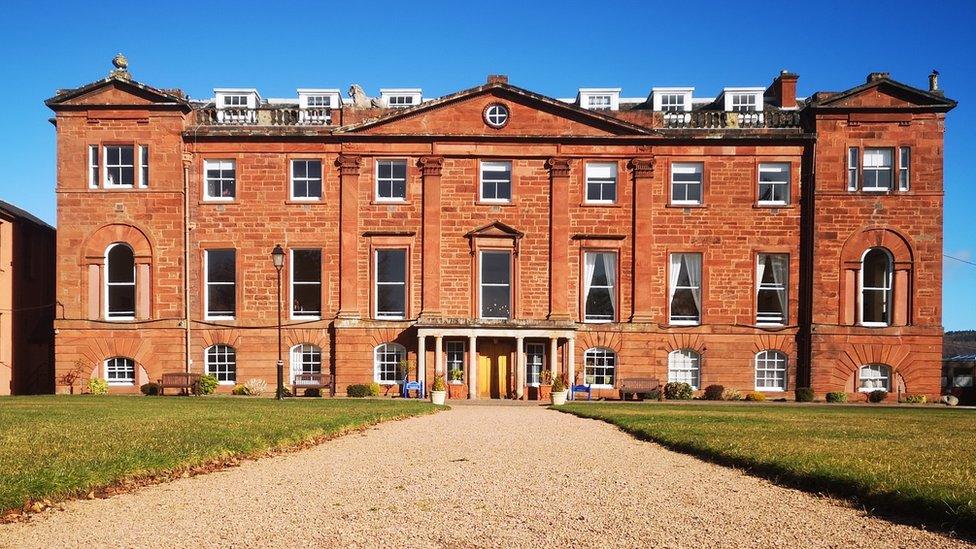
Kilgraston is now used as a school and was recently saved from closure
After the income from their sugar plantation dried up following the abolition of slavery, the Grant family fortunes dwindled until John Patrick (JP) Grant, sold Kilgraston estate and gifted the house to the nation in 1916.
The building was later bought by a Catholic charity and is now used as a private boarding school.
The school was recently saved from closure after donations from parents and supporters.
The founder of the Edinburgh Caribbean Association, Lisa Williams, said that it had taken years of campaigning for other such Scottish institutions to acknowledge their "exploitative global connections".
"Efforts have intensified to expand the knowledge of colonial Scotland during the past three decades," she said.
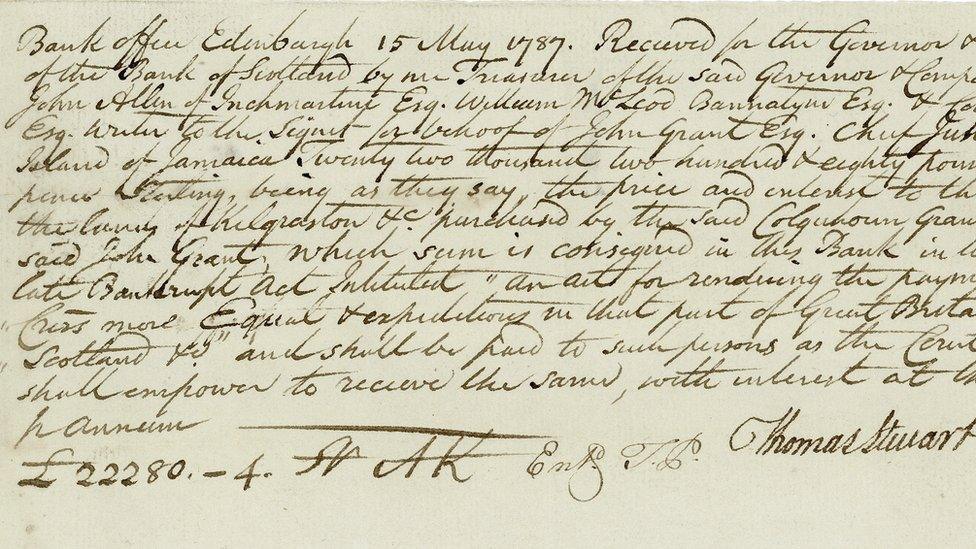
Mr Blake uncovered a receipt for the sale of Kilgraston House
Mr Blake said that JP Grant, who had sold the family estate, had written on one of the archived papers: "An interesting historical document but very distressing to read".
"From what I understand JP Grant took a huge interest in sorting through all the family papers, now why did he keep these ones?" Mr Blake asked.
"Was it because he wanted there to be a record of the atrocities that had happened?"
Mr Blake has now written a book - Sugar, Slaves and High Society - about his families exploits and how they made their wealth in Jamaica. In it he describes the actions of the Grant brothers as "morally repugnant".
"I could have kept everything locked in the boxes but it's very important for me and my family to know our background and I think it's quite right that this is brought into the open and discussed," he said.
"It has taken me 30 years in what has been a cathartic process.
"I can understand what drove them to make their money - but the the moral question I still can't get my head round and that will be with me forever I think."
- Published27 October 2022
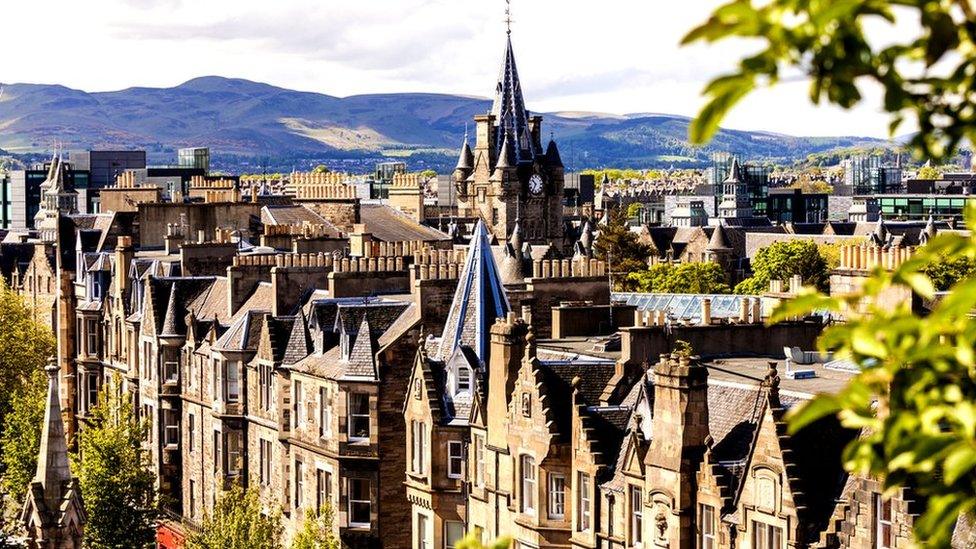
- Published30 March 2022
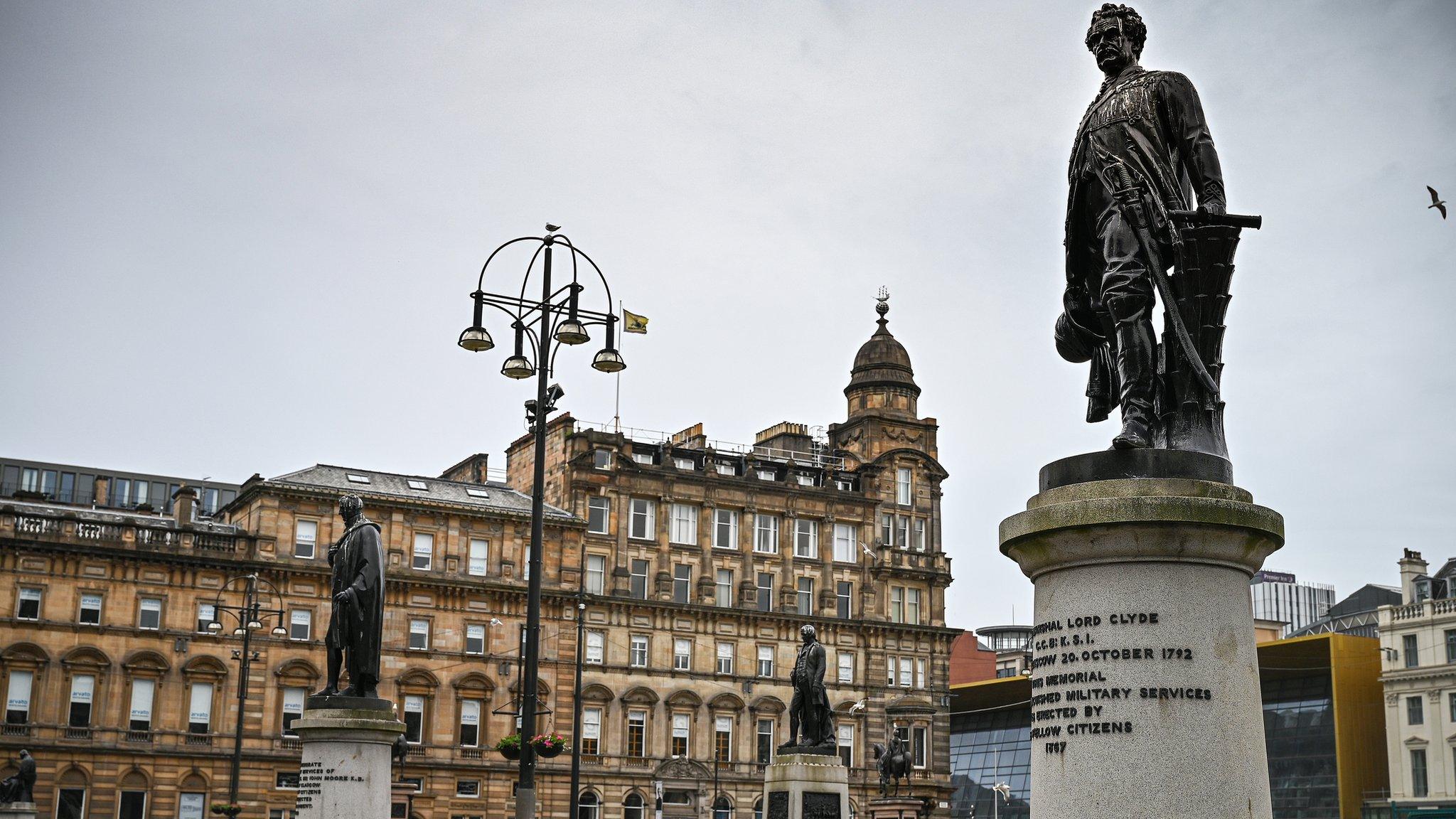
- Published11 June 2020
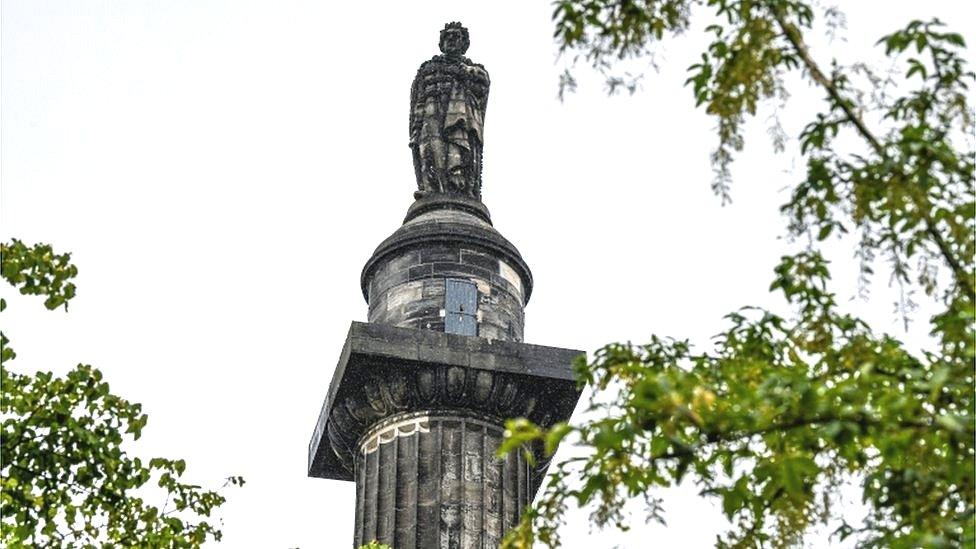
- Published9 June 2020
